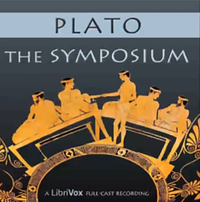Take a photo of a barcode or cover
informative
lighthearted
slow-paced
funny
informative
inspiring
reflective
medium-paced
Provavelmente o livro mais proibido para opiniões sexuais divergentes. Uma defesa da juventude como aluno cognitivo e seguidor cultural por deslocação dos tempos.
O problema da sociedade é que desta lição só reconhece o seu extremo porque a terminologia intermédia é ponto de aceitação.
O problema da sociedade é que desta lição só reconhece o seu extremo porque a terminologia intermédia é ponto de aceitação.
This is one of the most mediocre of the Socratic dialogues I’ve read so far. I say this because it lacks philosophical depth compared to Plato’s other works. While other dialogues cover topics such as morality and language, the Symposium talks about Love. This fascinating and complex topic is covered by a selection of characters that discuss the nature of love. The dialogue is structured as a sequence of monologues, each given by a different character. Some of the monologues are interesting and cover aspects of love such as its origin, its nature, and its object. One of the most interesting is the story of how love is necessary as it brings people to their “other half”. What is missing in this book is the philosophical depth that is present in the other dialogues. While there are intertextual elements between the monologues, there is a lack of the Socratic method of discussion. There is no dialectic between the characters. This means that there is not much depth to the monologues as the arguments and stories presented in each are hardly challenged in the others. Furthermore, the monologues are mostly based on Greek mythology, making them weak as actual arguments. I find this book then has value as a historical artifact that provides insight on Greek life and mythology. I will admit however that this is one of the better written dialogues by Plato as it contains many literary elements, most likely due to it being mostly fictional, giving it some leeway for creativity. Over all, this is one of the weaker dialogues but it is still an interesting read for those interested in Greek history and literature. 3/5
reflective
medium-paced
inspiring
reflective
slow-paced
idek why i’m rating this it just became a socrates glaze fest and i have to read it for school
I read Robin Waterfield's translation. It was accessible and easy to follow, although the introduction was lacking in cultural/historical context.







